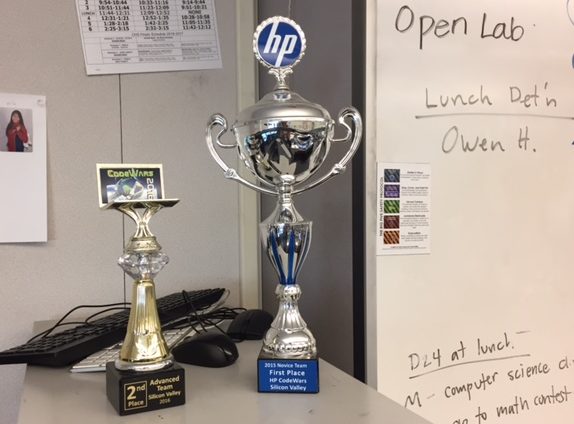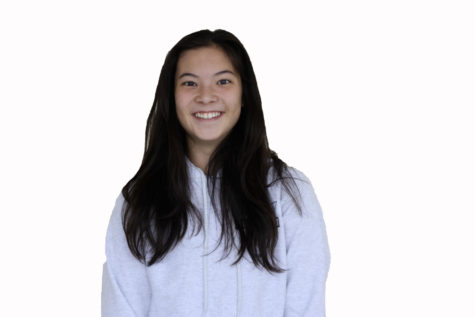
Fingers pound profusely on the keyboard with eyes fixed on the screen. Fast thinking, problem-solving, and collaboration are all being exercised as the final minutes approach. Programmers can’t afford to waste any time in this intense atmosphere.
Competitions like these are one of the ways that coders from the Computer Science Club can show off their expertise.
Computer Science Club provides an environment for students to expand their knowledge about computer science, as skilled members often teach beginners who wish to learn while also practicing their own programming skills.
Peter Trost, a junior, said, “I joined the club because I am interested in computer science and learning more about it in general since it’s a great skill to know. It’s used even if you aren’t going to be a computer science major, and it’s very applicable in a variety of jobs.”
In addition to lunchtime gatherings, the club has participated in multiple coding competitions that are hosted by well-known companies or schools. Currently, members are preparing to enter more in the near future, like CodeQuest, a competition hosted by aerospace company Lockheed Martin, and ProCo, a competition hosted by Stanford University.
In these competitions, high school teams, consisting of about two to three students, are given a series of computer science problems and are awarded points based on how many they solve within the allotted time span.
Computer Science Club President Edward Vendrow, a junior, said, “Coding competitions are quite fun and a very positive atmosphere, especially if there’s a lot of free food, like donuts. By the end of it, you’re tired and you just want to go home and sleep for 24 hours, but it’s really enjoyable and you feel accomplished afterward.”
After weeks of preparation and continuous hours spent on computers, students are eager to participate in the coding competitions, and they have now delved into the main events that Computer Science Club works toward.
AP Computer Science teacher Karyn Voldstad said, “Competitions are very interesting, so they have become the main focus. The kids enjoy practicing for them, whether they actually attend the competition or not. I always feel so proud watching my students at the competitions because they get themselves organized, start up all the computers, and know what other computer science geeks are talking about. It’s just fun to see the kids really getting into it.”
Oftentimes, Carlmont excels at these competitions; teams have brought home trophies in a variety of divisions.
“Carlmont has done great in past competitions. Last year, we won first place in CodeQuest and took home a big trophy. Last year at CodeWars, we won second place in the Advanced Division and first place in the Novice Division the year before that,” said Vendrow.
Vendrow himself has made a significant impact on the team’s successes in these competitions and plays a large role in organizing teams for the events, but all members who participate contribute greatly and learn from the experience.
“We do fantastic, and a lot of that is due to the Vendrows. As long as Edward Vendrow is on a team, we are going to be bringing home a trophy. However, even though it’s an intense three hours of coding with a lot of sugary, fatty food, everybody who attended has enjoyed it and thought it was a good experience,” said Voldstad.
Computer Science Club has provided an outlet for students to share their passion for computer science in creative and engaging ways, as it is a growing field that more students are gravitating toward. Coding competitions are a valuable introduction to real-world applications, in which students can experiment and practice problem-solving skills utilizing code.
“Computer science runs the world. It’s everything we do nowadays, so it’s important to learn about it and apply it to cause real change,” said Vendrow.

